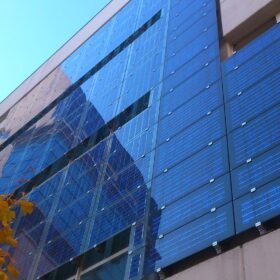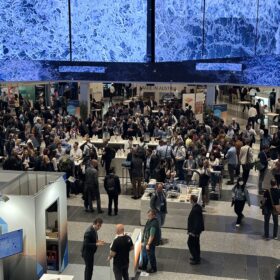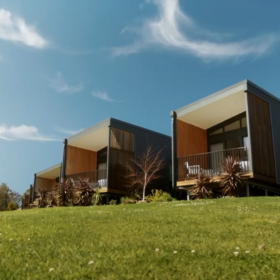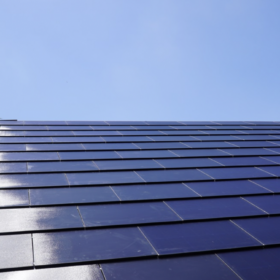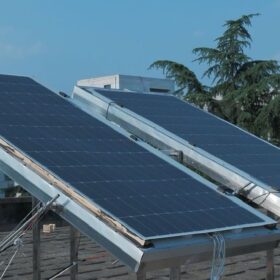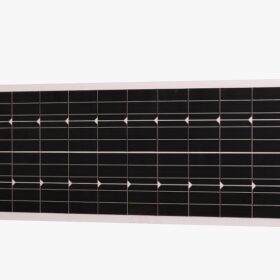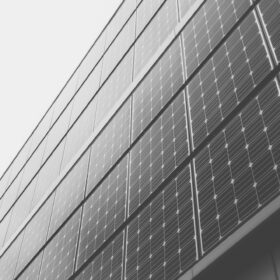Building-integrated photovoltaic system integrating PCM on sides
Scientists have designed a new building-integrated PV system that uses 30 mm of phase change material on each side of the wall. The array reportedly achieved superior thermoelectric coupling performance compared to reference BIPV systems without PCM.
‘You can’t stop at the door of the lab’ – EU PVSEC 2024
The 41st European Photovoltaic Solar Energy Conference (EU PVSEC) will draw to a close in Vienna this afternoon. Discussions at this year’s event leave little doubt that solar installations will continue to see impressive growth over the coming years. All week there has been plenty of optimism around new policy and technical innovations driving more solar into both electricity grids and urban and rural environments. For Europe, however, the lack of any meaningful capacity for manufacturing these promising technologies locally, puts something of a dampener on things.
BIPV for prefab net-zero housing trials in Australia
ClearVue Technologies, an Australia-based supplier of smart building materials, is providing a combination of its building-integrated photovoltaic (BIPV) technology and solar cladding panels in a prefabricated house trial trial.
Platio debuts new walkable solar panels
The Hungarian company said its new products can handle a load of 300 kg. The modules are available with power outputs of 23.65 W and 59.68 W and can be integrated with wood-plastic composite, wood, stone, or ceramic floorings.
Paxos Solar unveils glass-glass PV tile with heat pump integration
Paxos Solar has developed a new glass-glass PV tile that integrates with heat pumps, featuring Longi’s back-contact solar cells. The 44 W, 59.5 cm x 48 cm tile can also produce heat for residential systems.
Lightweight ventilated BIPV system for low-load rooftop applications
Scientists in China have designed a ventilated building-integrated photovoltaic system that relies on flexible solar modules with a weight of 6 kg/m2. The system also uses an airflow channel under the PV panels to reduce their operating temperature and increase their power yield.
Brazilian manufacturer unveils 1 kg BIPV module
Eternit S.A., a Brazilian construction materials supplier, says it has developed a 50 W panel for building-integrated PV (BIPV) applications. The 1 kg module features monocrystalline passivated emitter and rear cell (PERC) tech.
Building-integrated PV in the Netherlands
The latest report from the International Energy Agency Photovoltaic Power Systems Programme (IEA-PVPS) says that building-integrated photovoltaics (BIPV) could be key to help decarbonize cities in the Netherlands, but it warns that the needs of the solar and construction sector must be bridged.
ClearVue integrated solar window tech cracks Middle East construction market
Smart building materials company ClearVue Technologies has cracked the Middle East and Indian construction markets after signing a five-year agreement with Qatar’s largest glass and façade manufacturer.
Semi-transparent PV window based on passive radiative cooling coating
Scientists have manufactured and analyzed a novel coating for semi-transparent photovoltaic glazing that reportedly offers remarkable energy yield and a low heat gain rate. Through outdoor experiments, the researchers also found the glazing also provides satisfactory high-quality indoor lighting conditions.
